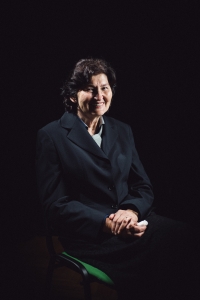Milica Matić: remembering the survival of her mother

Stáhnout obrázek
Milica Matić was born the 23rd of January 1949 in Divoselo, close to Gospić. She studied Croatian-Serbian language and literature, and later German. She studied at the pedagogical faculty in Rijeka and became a professor. In the interview, she remembers the survival of her mother, who was taken, together with the other Serbian population of the village, by the Ustaša in Jarčja jama. There, they were tortured, slaughtered, and thrown in the cave-pits. Only few people were lucky enough to survive and one of them was Milica’s mother.
